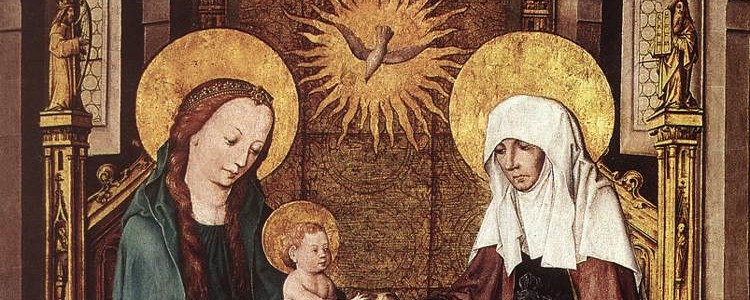Celebration of the Trinity
Trinity Sunday (in Danish Trinitatis søndag) is a day that celebrates and honours the Holy Trinity. We commemorate and celebrate God who is three in one: God the Father, God the Son and God the Holy Spirit. Trinity Sunday falls on the Sunday after Pentecost. Thus the Trinity season begins on the Sunday after Pentecost and lasts till the last Sunday before Advent, which falls in November.
At the many festivals during winter and spring we celebrate events that are related to God the Creator, God the Son or God the Holy Spirit. On Trinity Sunday we celebrate not an event but a reality: God three in one, a unity. The Trinity season that follows is called the everyday life of the Church. It contains approximately 25 Sundays. The liturgical colour of the Trinity season is green. Green symbolizes hope and growth.
Jesus' life and actions
During the Trinity season the message of Christmas, Easter and Pentecost takes root and creates growth. The Sunday services focus on what God's creation, Jesus' life, his death and resurrection and the presence of the Holy Spirit mean to us today.
The Bible readings and the sermons deal with fundamental human conditions. Examples of topics are sickness and healing, loving your enemy as well as your neighbour, guilt and forgiveness, the individual and society.
Harvest or creation services
Halfway through the Trinity season comes harvest time. Traditionally the churches have celebrated harvest time by holding a harvest service. In the past the vast majority of Danes were farmers. As a consequence of this the harvest service represented an important conclusion to the harvest that had taken place in the fields. Some churches still hold harvest services, including parish churches in the cities. The churches are decorated with crops, e.g. carrots, cabbage, flowers, sheaves, etc. In the cities the service often takes the shape of a thanksgiving service that gives thanks for the gifts of nature and not primarily the harvest of the year. A number of churches hold a creation service in late summer instead of a traditional harvest service.



